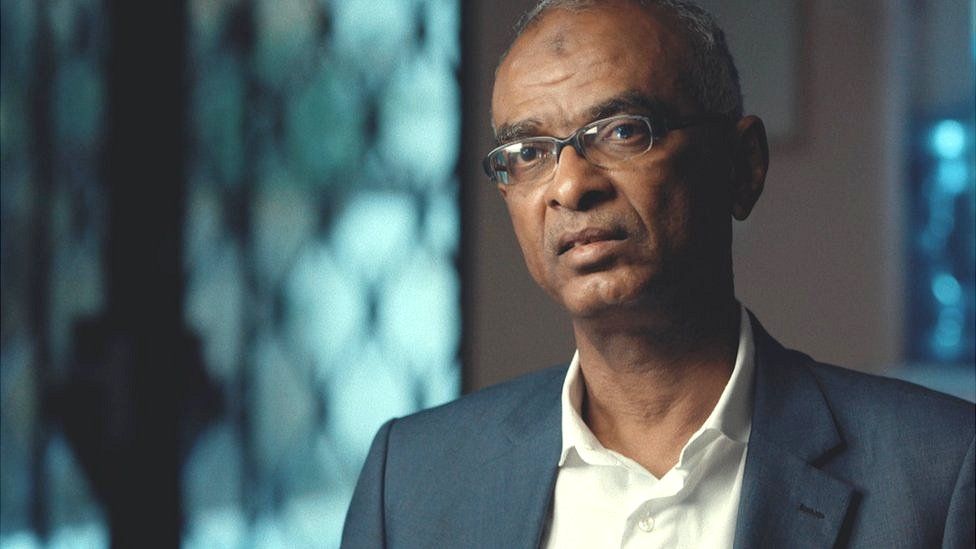Ok not City but their owners/Government going all Saudi
UAE has funded political assassinations in Yemen, BBC finds
Share
IMAGE SOURCE,JACK GARLAND/BBC
Image caption,
The son of Yemeni human rights laywer Huda al-Sarari was fatally shot in 2019
By Nawal al-Maghafi
BBC News Arabic Investigations
The United Arab Emirates (UAE) has funded politically motivated assassinations in Yemen, a BBC investigation has found, exacerbating a conflict involving the Yemeni government and warring factions which has recently returned to the international spotlight following attacks on ships in the Red Sea.
Counter-terrorism training provided by American mercenaries to Emirati officers in Yemen has been used to train locals who can work under a lower profile - sparking a major uptick in political assassinations, a whistleblower told BBC Arabic Investigations.
The BBC has also found that despite the American mercenaries' stated aim to eliminate the jihadist groups al-Qaeda and Islamic State (IS) in southern Yemen, in fact the UAE has gone on to recruit former al-Qaeda members for a security force it has created on the ground in Yemen to fight the Houthi rebel movement and other armed factions.
The UAE government has denied the allegations in our investigation - that it had assassinated those without links to terrorism - saying they were "false and without merit".
The killing spree in Yemen - more than 100 assassinations in a three-year period - is just one element of an ongoing bitter internecine conflict pitting several international powers against each other in the Middle East's poorest country.
The deadly atmosphere has discouraged the permanent return of Yemen's internationally recognised government. This, it could be argued, has indirectly helped to embolden the Iran-backed Houthis - currently in the news for attacking ships and disrupting trade in the Red Sea. In recent days, Washington has announced that it will
now re-designate the group as "global terrorists".
I have been reporting on the conflict in my native Yemen since it began in 2014. The fighting led to the government losing control of the country's north to the Houthis - who over the years have become savvier and better equipped.
In 2015, the US and the UK supported a coalition of mostly Arab states led by Saudi Arabia - with the UAE as a key partner - to fight back. The coalition invaded Yemen with the aim of reinstating the exiled Yemeni government and fighting terrorism. The UAE was given charge of security in the south, and became the US's key ally on counter-terrorism in the region - al-Qaeda had long been a presence in the south and was now gaining territory.
American mercenaries: Killing in Yemen
BBC Arabic's Nawal al-Maghafi reveals how the UAE hired mercenaries to conduct targeted assassinations of its political enemies in Yemen, with American mercenaries starting the killings in 2015.
Watch now on BBC iPlayer (UK Only) or on BBC Two at 23:15 on Tuesday 23 January (23:45 in Northern Ireland).
Listen to Nawal al-Maghafi's radio documentary on Assignment on the BBC World Service and on BBC Sounds from Thursday 25 January.
But instead of this establishing greater stability, during my frequent reporting trips at that time I witnessed a wave of mysterious targeted killings, in Yemeni government-controlled southern areas, of Yemeni citizens unconnected to terror groups.
Under international law, any killing of civilians without due process would be counted as extra-judicial.
The majority of those assassinated were members of Islah - the Yemeni branch of the Muslim Brotherhood. It is a popular international Sunni Islamist movement which has never been classified by the US as a terror organisation, but is banned in several Arab countries - including the UAE where its political activism and support for elections is seen by the country's royal family as a threat to their rule.
Leaked drone footage of the first assassination mission gave me a starting point from which to investigate these mysterious killings. It was dated December 2015 and was traced to members of a private US security company called Spear Operations Group.
I finally met one of the men behind the operation shown in the footage in a restaurant in London in 2020. Isaac Gilmore, a former US Navy Seal who later became chief operating officer of Spear, was one of several Americans who say they were hired to carry out assassinations in Yemen by the UAE.
IMAGE SOURCE,JACK GARLAND/BBC
Image caption,
Isaac Gilmore was paid by the UAE to carry out targeted killings
He refused to talk about anyone who was on the "kill list" provided to Spear by the UAE - other than the target of their first mission: Ansaf Mayo, a Yemeni MP who is the leader of Islah in the southern port city of Aden, the government's temporary capital since 2015.
I confronted Mr Gilmore over the fact that Islah had never been classified as a terrorist organisation by the US authorities.
"Modern conflicts are unfortunately very opaque," he said. "We see this in Yemen - one person's civil leader and cleric, is another person's terrorist leader."
Mr Gilmore, and another Spear employee in Yemen at the time - Dale Comstock - told me that the mission they conducted ended in 2016. But the assassinations in southern Yemen continued. In fact they became more frequent, according to investigators from the human rights group Reprieve.
They investigated 160 killings carried out in Yemen between 2015 and 2018. They said the majority happened from 2016 and only 23 of the 160 people killed had links to terrorism. All the killings had been carried out using the same tactics that Spear had employed - the detonation of an improvised explosive device (IED) as a distraction, followed by a targeted shooting.
The most recent political assassination in Yemen, according to Yemeni human rights lawyer Huda al-Sarari, happened just last month - of an imam killed in Lahj by the same method.
Mr Gilmore, Mr Comstock, and two other mercenaries from Spear who asked not to be named, said that Spear had been involved in training Emirati officers in the UAE military base in Aden. A journalist who asked to remain anonymous also told us he had seen footage of such training.
The mercenaries would not go into detail about what it had entailed, but a senior Yemeni military officer from Aden, who worked directly with the UAE himself, gave me more details.
Image caption,
Ansaf Mayo, leader of al-Islah, who was targeted by Spear and now lives in exile
As the mercenaries' profile had made them conspicuous in Aden and vulnerable to exposure, their brief had been changed to training Emirati officers, "who in turn trained local Yemenis to do the targeting", the Yemeni military officer told me.
Through the course of the investigation, we also spoke to more than a dozen other Yemeni sources who said this had been the case. They included two men who said they had carried out assassinations which were not terror-related, after being trained to do so by Emirati soldiers - and one man who said he had been offered release from a UAE prison in exchange for the assassination of a senior Yemeni political figure, a mission he did not accept.
Getting Yemenis to conduct the assassinations meant it was harder for the killings to be traced back to the UAE.
By 2017, the UAE had helped build a paramilitary force, part of the Emirati-funded Southern Transitional Council (STC), a security organisation that runs a network of armed groups across southern Yemen.
The force operated in southern Yemen independently of the Yemeni government, and would only take orders from the UAE. The fighters were not just trained to fight on active front lines. One particular unit, the elite Counter Terrorism Unit, was trained to conduct assassinations, our whistleblower told us.
Yemen's conflict
- In 2014, rebels known as Houthis belonging to a branch of Yemen's minority Shia Muslim community seized the capital, Sanaa
- President Abdrabbuh Mansour Hadi set up a temporary capital in the southern city of Aden after fleeing house arrest in Sanaa in February 2015
- Saudi Arabia and eight other mostly Sunni Arab states began an air campaign against the Houthis, whom they claimed were armed by regional rival Iran. The Saudi-led coalition has received logistical support from the US, UK and France
- There have even been clashes between those ostensibly on the same side. In August 2019 fighting erupted in the south between Saudi-backed government forces and an allied southern separatist movement, the Southern Transitional Council (STC), which has accused President Hadi of mismanagement and links to Islamists
- Militants from al-Qaeda in the Arabian Peninsula (AQAP) and the local affiliate of the rival Islamic State group (IS) have taken advantage of the chaos by seizing territory in the south and carrying out deadly attacks, particularly in Aden
- The Houthis have also expanded their own circle of influence - in November 2023 they began carrying out attacks on international shipping routes in the Red Sea

The whistleblower sent a document with 11 names of former al-Qaeda members now working in the STC, some of whose identities we were able to verify ourselves.
During our investigation we also came across the name Nasser al-Shiba. Once a high-ranking al-Qaeda operative, he was jailed for terrorism but later released. A Yemeni government minister we spoke to told us al-Shiba was a known suspect in the attack on the US warship USS Cole, which killed 17 American sailors in October 2000. Multiple sources told us that he is now the commander of one of the STC military units.
Lawyer Huda al-Sarari has been investigating human rights abuses committed by these UAE-backed forces on the ground. As a result of her work, she would frequently receive death threats. But it was her 18-year-old son Mohsen who paid the ultimate price.
He was shot in the chest in March 2019 while on a trip to a local petrol station, and died a month later. When Huda returned to work after his death, she says she received messages warning her to stop. "Was one son not enough? Do you want us to kill the other?" they said.
A subsequent investigation by Aden's public prosecutor found that Mohsen was killed by a member of the UAE-backed Counter Terrorism Unit, but the authorities have never pursued a prosecution.
Members of the prosecutor's office - who we cannot name for safety reasons - told us that the widespread assassinations have created a climate of fear that means even they are too afraid to pursue justice in cases involving forces backed by the UAE.
Reprieve has received a leaked UAE document that shows Spear was still being paid in 2020, though it is not clear in what capacity.
We asked Spear's founder, Abraham Golan, whether his mercenaries had trained Emiratis in assassination techniques, but he didn't respond.
We put the allegations in our investigation to the UAE government.
It said it was untrue that it had targeted individuals with no links to terrorism, and that it supported counter-terrorism operations in Yemen at the invitation of the government of Yemen and its international allies.
"The UAE has acted in compliance with applicable international law during these operations," it said.
We asked the US Department of Defense and the State Department to talk to us about Spear Operations Group, but they declined. And the US government's intelligence agency said in a statement: "The idea that the CIA signed off on such an operation is false."








